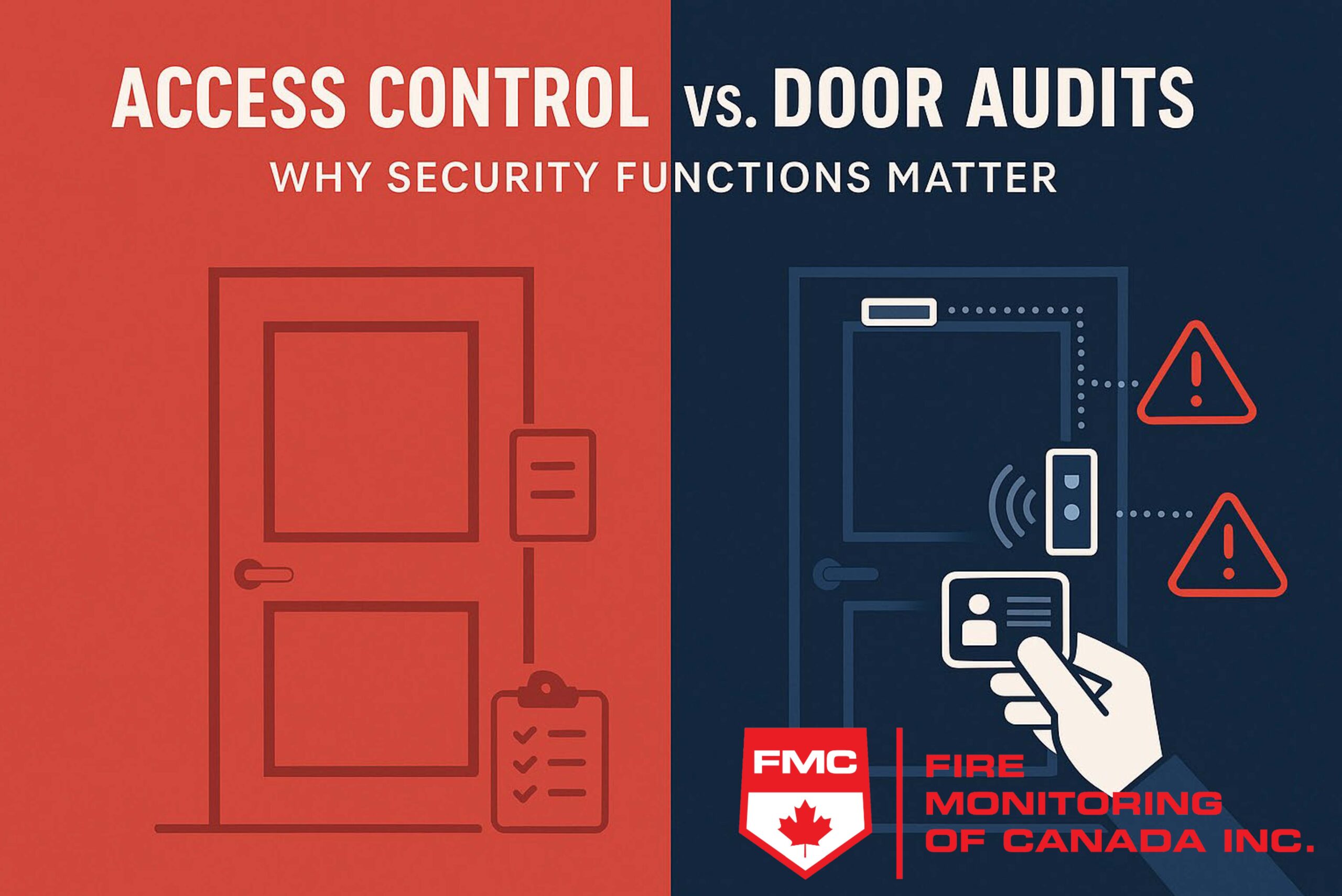Comprehensive Access Control vs. Door Audits: Why Security Functions Matter

Comprehensive Access Control vs. Door Audits: Why Security Functions Matter
When organizations evaluate door monitoring or user tracking, many overlook the difference between comprehensive access control and simple door auditing. Although both solutions track door activity, only one provides real-time security, safety, and operational oversight. We’re going to take a look at the differences between comprehensive access control vs door audits to help you choose what is best for your building and/or needs.
What Are Basic Door Audits?
A door audit system logs door activity but does not provide live security insight.
Door audits can:
- Track door open/close activity
- Log credential use (if paired with a reader)
- Provide historic reporting
Door audits cannot:
- Detect real-time door forced open (DFO) events
- Detect door held open (DHO) violations
- Send security alerts to responders
- Differentiate forced access from legitimate exit
- Support mustering or live occupancy status
- Integrate with monitoring centres or dispatch workflows
This makes audits a purely retrospective solution.
What Is Comprehensive Access Control?
A comprehensive access control system regulates access and monitors the security status of the door in real time. These systems include:
- Door contacts to confirm open/closed status
- Request-to-Exit (REX) devices to distinguish normal egress from forced exit
- In and out readers for dual-direction accountability
- Electric locks to enforce access rules
- Supervised inputs for tamper detection and device health
Together, these components convert a door into a fully monitored security point.
Why Security Functions Are Critical
Door Forced Open (DFO)
A DFO event occurs when a door opens without a valid credential or REX activation. It may indicate:
- Attempted forced entry
- Tailgating or bypass
- Compromised locking hardware
- Propped or defeated doors
Door Held Open (DHO)
A DHO event occurs when a door is held open beyond the allowed time after a valid access. This typically signals:
- Intentional propping
- Door closer failure or misadjustment
- Fire separation risk
- Occupational policy violations
Both events are essential for maintaining building integrity, loss prevention, and audit compliance.
Who Receives These Alerts—and Why It Matters
With comprehensive access control, DFO and DHO events can notify the right teams in real time:
- Security operations
- Building management
- Facilities and property managers
- Monitoring stations
- Local guard staff and on-call supervisors
Real-time alerts help prevent unauthorized access, reduce loss, detect mechanical failures early, and enforce policy consistently.
Operational Benefits Beyond Security
- Traffic flow and occupancy tracking: Dual readers (in/out) maintain accurate counts and accountability.
- Automations: Time-based lock/unlock schedules aligned to policy and operations.
- Integrations: Intrusion systems, fire panels, video surveillance, visitor management, and dispatch.
- Evidence & reporting: Rich event data for investigations and continuous improvement.
A Quick Overview of Mustering
Mustering uses access control data to determine who is still inside during an emergency.
How mustering works:
- In/out readers determine real-time occupancy of a building or zone
- Muster readers or muster points record evacuees during an event
- Live reports show who remains inside for first responders
Why mustering matters:
- Supports OH&S and life-safety compliance
- Focuses emergency response where it’s needed
- Reduces organizational liability and improves outcomes
Door auditing alone cannot support mustering due to its lack of live monitoring and direction-of-travel tracking.
Conclusion
While door audits provide basic information, comprehensive access control delivers the security, safety, and operational capabilities modern buildings require. Real-time DFO/DHO alerts, supervised security devices, integrations, and mustering capabilities create a safer, more compliant building environment.